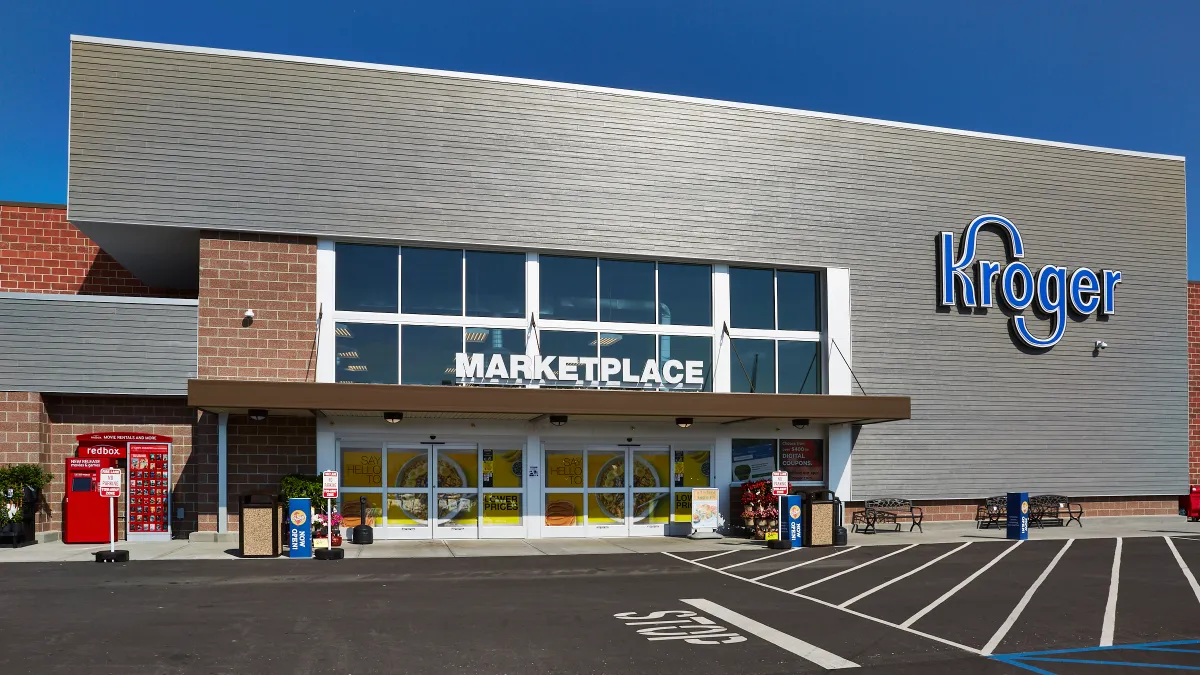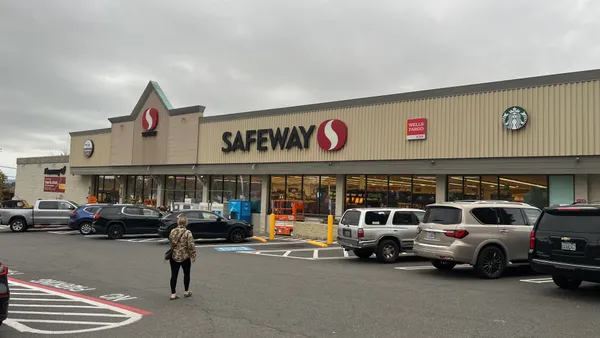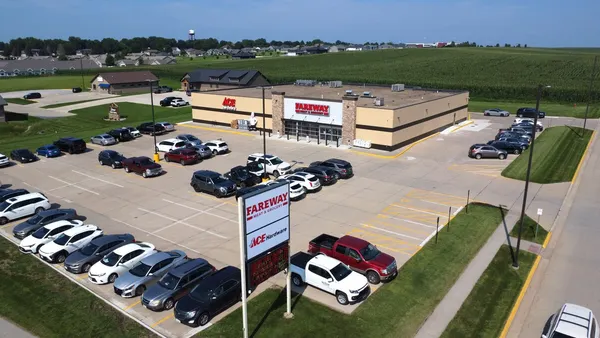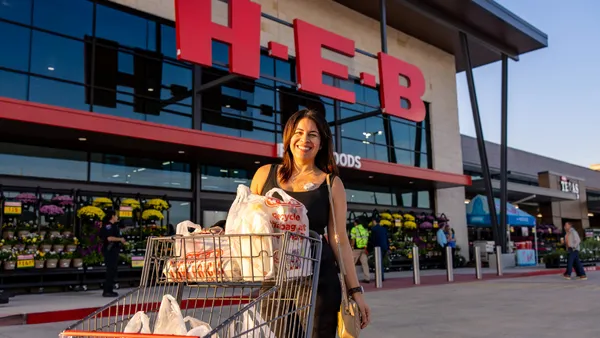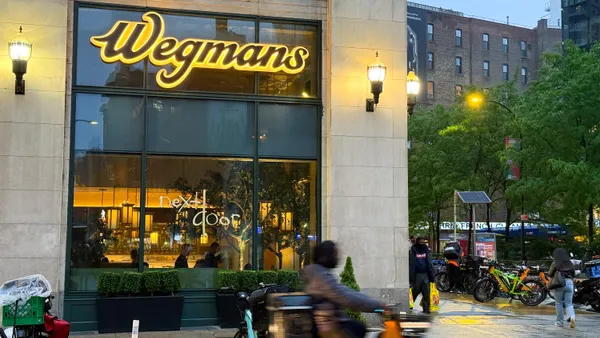When Kroger and Albertsons announced their intention in October 2022 to combine into a single grocery company, the retailers instantly set off a firestorm of pushback from a wide range of critics worried the merger would squash competition and disenfranchise shoppers. Nearly two years later, the controversial merger is finally heading to the courtroom floor.
Since announcing their proposed deal, the grocery giants have faced heavy opposition from state and federal regulators, unions, consumer groups and other critics determined to stop Kroger and Albertsons from winning clearance for their proposed $24.6 billion transaction.
If allowed to proceed, the merger would meld two of the country’s largest grocery chains into a company that, with more than 4,000 supermarkets across the U.S., would rival Walmart and Amazon in scale.
When the merger plan was first announced back in fall 2022, Kroger CEO Rodney McMullen and Albertsons CEO Vivek Sankaran believed the deal would be closed by early this year. Instead, throughout 2024, the merger has been defined by legal delays, alterations to its proposed divestiture plan with C&S Wholesale Grocers and battles with the FTC.
Here are highlights of how Kroger and Albertsons’ deal has progressed over the past two years and a look at the opposition the companies have encountered.
Timeline of the Kroger-Albertsons merger
-
October 2022Kroger announced its agreement to purchase Albertsons and said it expected to close the deal in early 2024, subject to regulatory approval. Nearly two weeks later, Albertsons defended its upcoming $4 billion special dividend, which attorneys general for five states and Washington, D.C., claimed could weaken the grocer’s financial health and ability to compete even as it rewarded investors.
-
November 2022Originally, Albertsons was slated to pay the dividend on Nov. 7, but legal battles and restraining orders postponed it. At the end of the month, Kroger and Albertsons’ chief executives testified during a U.S. Senate hearing that they did not intend to close any of the supermarkets they operate if the merger receives regulatory clearance.
-
December 2022Kroger announced that the Federal Trade Commission requested more details — known as a “second request” — about the merger, indicating that the agency was taking a closer look at how the deal could impact competition.
-
January 2023Albertsons announced it would proceed with its $4 billion special dividend after a months-long court battle. The Washington Supreme Court declined to take up an appeal by the state’s attorney general after a lower court ruling sided with the dividend payout.
-
February 2023A Reuters report citing unnamed sources said Kroger and Albertsons were planning to divest between 250 and 300 stores in an effort to satisfy regulators.
-
May 2023Kroger reiterated its pledge to not close locations or lay off workers if the federal government allows the merger to proceed.
-
September 2023Kroger and Albertsons announced $1.9 billion divestiture plans with C&S which includes 413 stores, eight distribution centers and three store banners across 17 states and Washington, D.C.
-
December 2023Six congress members — Sens. Elizabeth Warren, Mazie K. Hirono, Bernie Sanders and Cory Booker and Reps. Summer Lee and Alexandria Ocasio-Cortez — called on the FTC to stop the proposed merger, stating in a letter that the companies’ divestiture deal falls short of addressing concerns around consumers, workers and the grocery industry.
-
January 2024Kroger and Albertsons pushed back the timeline for their proposed merger and said they expected the deal to close during the first half of Kroger’s next fiscal year, which begins Feb. 4. That same week, the Washington state Attorney General Bob Ferguson filed a lawsuit aiming to prevent the merger.
-
February 2024Colorado Attorney General Philip J. Weiser filed a lawsuit seeking to block the Kroger-Albertsons merger following a multistate investigation into the deal led by Weiser’s office. Later in February, the FTC filed a federal lawsuit against Kroger and Albertsons’ merger deal as well as rejected its proposed divestiture plan, saying in a statement that it “falls far short of mitigating the lost competition between Kroger and Albertsons.” Nine attorneys general joined the FTC’s complaint.
-
March 2024Kroger and Albertsons pushed back on the FTC’s decision to challenge their proposed merger, arguing in separate legal filings that the agency is wrong in its claim that their combining would reduce competition in the grocery industry and weaken workers’ unions.
-
April 2024A Washington state judge denied Kroger’s motion to dismiss the lawsuit brought by state attorney general Ferguson seeking to block the merger, allowing the lawsuit to move forward. The trial is scheduled to begin Sept. 16, according to court documents. As Kroger and Albertsons continue to push back on the FTC, the two companies updated their divestiture plan with C&S, increasing by more than a third the number of stores they plan to divest to C&S. The all-cash deal’s value increased to $2.9 billion.
-
July 2024A Colorado judge issued an order temporarily blocking the deal and granting the state’s request for a preliminary injunction. The grocers also agreed not to consummate the merger until the state court rules on the lawsuit. The judge canceled a hearing scheduled for Aug. 12, setting the trial to begin Sept. 30. The grocers also publicly divulged the list of locations of stores, distribution centers and a plant they intend to divest to C&S.
Kroger and Albertsons’ CEOs have repeatedly stated this merger would lead to reduced food prices and that employees’ jobs with the retailers would be secure — but prominent industry players have remained unconvinced.
By comparison, other mergers and acquisitions in the grocery sector in recent years, like Aldi’s plans to buy approximately 400 Winn-Dixie and Harveys Supermarket from Southeastern Grocers, have received far less or no pushback.
Numerous times throughout the past two years, Kroger executives have tried to ease public concerns through blog posts and interviews. In mid-August, the grocer confirmed it plans to invest $1 billion in price cuts if the merger goes through. Last year, Kroger pledged to expand employee resources if the merger gets approved and, in a separate announcement, the grocer made a local sourcing commitment tied to the Albertsons merger.
While the first year after the merger’s announcement saw an uproar of opposition, 2024 has brought supporters out of the woodwork.
Earlier this month, four state attorneys general urged a federal court to reject the FTC’s bid to block the Kroger-Albertsons merger.
According to the state attorneys general of Ohio, Alabama, Georgia and Iowa, the FTC’s opposition to the deal is based on a “simplistic vision of the retail grocery market, and blocking the acquisition would weaken, not protect, competition among firms vying for consumer grocery purchases.”
Editor’s note: Updated to include developments to the merger since October 2023.


